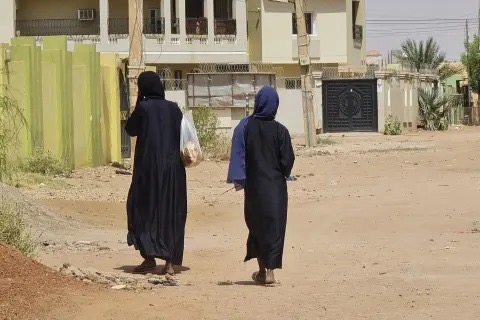“Khartoum Is Not Safe for Women!” (1-4)

HRW
The report focuses on events in Khartoum, Bahri and Omdurman, which at the time the research was conducted, were largely under RSF control, although some areas came under SAF control around January 2024 onwards.
Service providers interviewed by Human Rights Watch, attributed most cases of conflict-related sexual violence to RSF members, based on accounts provided by survivors and the fact that the RSF exercised control over the residential areas of Khartoum where most cases of sexual violence they responded to occurred. Fewer cases were attributed to SAF members. Services providers described particularly high levels of sexual violence in populated areas of Khartoum North and Omdurman, including by SAF after it regained control of parts of Omdurman in January 2024.
Several service providers said that survivors and community members were scared to report incidents involving SAF forces, notably because they were concerned the SAF-aligned authorities would dismiss their claims.
Many survivors told the medical providers that they were raped by multiple perpetrators, involving up to five RSF fighters. RSF have also seized women and girls from their homes, streets, and workplaces, and detained or confined them in homes and other facilities they occupied in Khartoum and its sister cities.
RSF members sexually assaulted women and girls in front of their family members, adding to the trauma experienced by victims and witnesses and potentially compounding stigma and other social consequences for survivors. “We received a case of a mother and her four daughters who were raped in front of their father and brothers. They were not able to leave their home as the RSF placed them under some sort of house arrest. These women were raped repeatedly for days. One of the daughters was pregnant when they were able to reach us,” said a health worker in Khartoum.
The RSF also subjected women and girls to forced and child marriage in Khartoum. In some instances, relatives acquiesced to these marriages in the belief that doing so might protect a woman or girl from rape outside of marriage, or for financial reasons.
The physical, emotional, social, and psychological scars left on the survivors are immense. Healthcare workers told Human Rights Watch that they encountered survivors seeking assistance for debilitating physical injuries they sustained due to the violence of the rapes and gang rapes, including vaginal bleeding, bruises, and other physical trauma. In at least four cases, these physical injuries led to the victims’ death. Many survivors sought to terminate their pregnancy when they became pregnant from rape; these survivors could not necessarily access abortion care.
The women, men and children who survive these abuses also face mental health consequences. Survivors described or showed symptoms consistent with post-traumatic stress and depression, including suicidal thoughts, anxiety, fear, and sleeplessness. “I spoke to a survivor who was raped and had just discovered she was 3 months pregnant,” explained a psychiatrist who supported over 40 survivors of rape between April and November 2023. “She was clearly traumatized and shivering—afraid of how her family would react. She said to me, ‘If they discover my situation, they will kill me.’”



